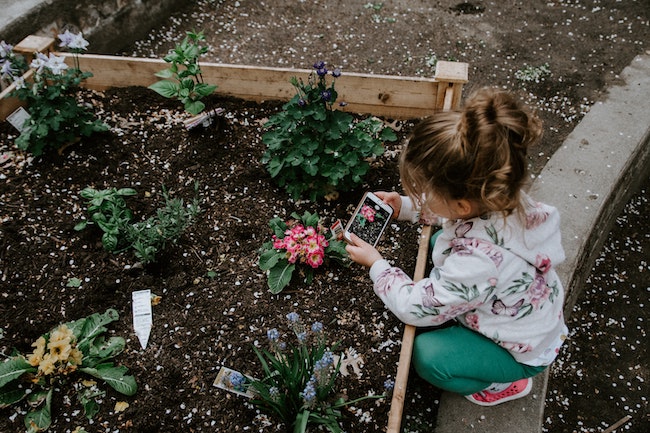Creating a sustainable garden

It might surprise you to learn that not all gardens are environmentally friendly. With modern gardening practices, such as endless sculpting, mowing, and the frequent use of fertiliser and chemicals, your garden becomes inhospitable to wildlife, and it becomes harder to grow your own fruits and vegetables.
Rewild your garden and make it more sustainable with the following tips. You will be reaping the rewards in no time.
Make your garden insect friendly
Insects are a sign of a healthy garden. If you’ve noticed a decline, then let areas of your garden grow wild. The wilder the better; the greater the biodiversity of your plants, the greater the diversity of the insects that will visit. Consider also adding insect-friendly plants, prioritising fragrant, colourful species. What’s more, some insects act as natural pest repellents, so you want plenty of them!
As well as a wild corner, add a log pile. Fallen leaves, twigs, and stones provide a great shady hiding spot for the likes of worms, frogs, and even hedgehogs looking for their supper! Watch as the local wildlife call this cosy corner home.
Solar lights
When it comes to sustainability and energy reservation, solar lights are a no-brainer. And they don’t have to be purely functional. Solar-powered garden lights offer the perfect place to absorb lots of sunshine; they’re easy to install and they create warm, cosy corners if you still want to enjoy your garden in the evenings.
Have fun putting twinkly lights in the trees, add lanterns to tabletops, dot some candles around, and even prop up some figurines to give it a festive glow. All you need now is a fuzzy blanket, your slippers, and a glass of red.
Grow your own fruit and vegetables
Aside from the obvious benefit of saving money, growing your own fruit and vegetables will reduce the amount of waste your household produces. By relying less on supermarkets, you are using less non-recyclable packaging and reducing the emissions used to deliver your food to the supermarkets in the first place.
And because no one wants to waste what they’ve spent hours nurturing, you’re likely to eat more fruits and vegetables as a result! Everyone is a winner.
Make your own compost
Before you embark on your vegetable-growing journey, you’re going to need some decent compost. Make your own with your organic waste. Not only does it recycle all your waste, but it’s also better than shop-bought compost. That’s because it’s peat free and boasts a varied mix of ingredients that prove invaluable for the vegetable patch.
What’s more, your local wildlife will love it! Expect some frequent visitors, like bumblebees, hedgehogs, and worms, and see your garden bloom into an abundant source of food, coloursand wildlife.



